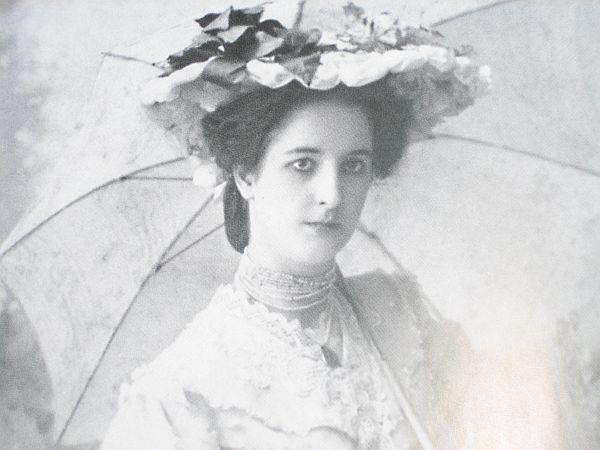
At a time when Slovenian theater was in its infancy, a woman named Marija Vera redefined the profession and won acclaim throughout Central Europe. With her cosmopolitan spirit, she also managed to leave a profound legacy on the Slovenian stage.
Marija Vera was born Franziska Xaveria Maria Eppich in the northern Slovenian town of Kamnik in 1881. Of mixed Slovenian and German descent, she was orphaned by the time she was 13. She grew up to become an introverted, shy woman. After a stint as a teacher, she decided to pursue her dream: to become an actress. She moved to Vienna, the Imperial Capital, where she became the first Slovenian woman to attend an acting academy.
Her talents on the stage – and her ability to portray complex, emotionally troubled characters – were quickly noticed, and she went on to perform throughout Austria and Switzerland. In Zurich, her exceptional performance in Schiller’s Maid of Orleans is still considered one of the creative turning points in 20th century Swiss theater. For several years, Marija Vera was a regular actress at Berlin’s famous Deutsches Theater, and in 1913, she became the first Slovenian actress to appear in a film – a German feature about Bismarck. Meanwhile, she appeared in more than 200 stage roles, ranging from Shakespeare to modern dramas.
Marija Vera received considerable attention for her performances in German tragedies. At the time, her personal life was as dramatic as some of those plays. She married the Russian-German Baron Osten Sacken. The marriage gave Marija Vera the title of Baroness, but it also made her life much more difficult, since many theater companies did not accept married actresses at the time. The couple would eventually get divorced; Baron Osten Sacken moved back to Russia and disappeared after the Russian revolution.
Meanwhile, Marija Vera continued to perform throughout Europe, from Poland to Bosnia-Herzegovina. She spoke three different languages on the stage – Slovenian, German, and Serbo-Croatian --, and often portrayed strong, intimidating women. One of her most memorable roles was Ibsen’s Hedda Gabler.
After World War I, Marija Vera returned to Slovenia, and in 1923, she joined the Slovenian Drama Company in Ljubljana, where she would remain for many years. In the following years, she took on many roles in Slovenian and international plays, and brought the knowledge and experience she had acquired on stages around Europe to the still-developing Slovenian theater. Always a solitary person, she focused on her work, and was rarely seen at social events attended by other actors.
After World War II, she began to teach at the newly-established Academy of Theater Arts, and in 1951, she was awarded the prestigious Prešeren Prize. Still, the new Communist authorities viewed her cosmopolitanism and German background with suspicion, and her achievements were frequently overlooked. She died a relatively obscure figure in 1954.
Today, there is a growing awareness of Marija Vera’s work, and a school in her native town of Kamnik bears the name of a woman whose cosmopolitan spirit changed Slovenian stage arts forever.

































































